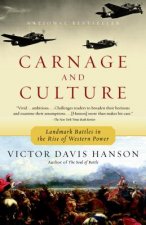
Code: 10794480
Struggle for Control of the Hinterland of the Bight of Biafra
by Dr Frank Nwabueze Ihekwaba
This book tells the story of the people of Igbo land at the middle of the nineteenth century, when Europe and Europeans held the dominant power over the lives and affairs of many peoples in Africa. This dominance, however, was nev ... more
- Language:
 English
English - Binding: Paperback
- Number of pages: 266
Publisher: AuthorHouse, 2016
- More about this

You might also like
-

Current Developments in Spatial Planning
130.19 € -12 % -

Brooklyn Zoo
13.59 € -20 % -

Brandy's Pocket Posh Journal, Chevron
7.75 € -24 % -

Life Lessons Learned Down at the Pub
33.25 € -

Hastings
21.56 € -17 % -

Lost Apocrypha of the Old Testament
14.60 € -19 % -

Teaching Information Literacy through Short Stories
124.35 €
Give this book as a present today
- Order book and choose Gift Order.
- We will send you book gift voucher at once. You can give it out to anyone.
- Book will be send to donee, nothing more to care about.
More about Struggle for Control of the Hinterland of the Bight of Biafra
You get 54 loyalty points
 Book synopsis
Book synopsis
This book tells the story of the people of Igbo land at the middle of the nineteenth century, when Europe and Europeans held the dominant power over the lives and affairs of many peoples in Africa. This dominance, however, was never supposed to be total or absolute. Nevertheless, it managed to cast a constricting shadow-with its associated, if unhealthy, ambience-on the day-to-day lives of the people using the overwhelming military and economic power at its disposal at a time when Africans were either recovering from five hundred years of stupor brought on by its own dark ages (AD 1100-1600) or the shock and paralysis that followed the Moroccan (Mohamedan) and Spanish-mercenary-assisted mayhem and chaos of 1591 against the African kingdoms of West Africa. But the white man would soon lose most of his political and economic opportunities, and some of the absolute attributes he had mustered over the years the moment Britain and the other European races saw themselves as divinely appointed to right the wrongs of mankind. He would, from then on, render himself vulnerable to the tide of African enlightenment and progress, which was then building up everywhere, once the trade by which he had gained his ascendency over the other races of mankind began to decline. In addition, European ascendency witnessed an unusual reversal of luck when its residual strengths, recently boosted with the development of some newer types of weaponry-the Maxim machine gun in the UK (1883) and the Mauser Machine gun (1891) in Germany-weapons whose astonishing power and versatility had not previously been seen or tested in any battlefront, became more widely available to European and non-European troops. These, however, could not provide definitive answers to all the tactical and strategic imperatives of the developing new battlefront which European armies had sought. Nevertheless, these new weapons became celebrated after they were successfully used to hold the line and repel hordes of brave native fighters armed only with machetes and spears (South Africa) and bows and arrows (Kitchener's Sudan), enabling British forces to claim easy victories over the native forces; several Victoria Crosses would be won on both battlefronts by the British army. The success of the campaigns clearly went to the heads of the victorious army commanders. Thus were sown the seeds that would grow, leading to the idea of invincibility of the white man in the battlefield and the tragic events that preceded the First World War (1914-1918).
 Book details
Book details
Book category Books in English Humanities History Military history
21.35 €
- Full title: Struggle for Control of the Hinterland of the Bight of Biafra
- Subtitle: The Untold Story of the British Military Expedition to Igbo Land (1830-1930)
- Author: Dr Frank Nwabueze Ihekwaba
- Language:
 English
English - Binding: Paperback
- Number of pages: 266
- EAN: 9781504998222
- ISBN: 9781504998222
- ID: 10794480
- Publisher: AuthorHouse
- Weight: 395 g
- Dimensions: 229 × 152 × 15 mm
- Date of publishing: 23. February 2016
Trending among others
-

Conversations With Major Dick Winters
17.22 € -10 % -

Brothers in Battle, Best of Friends
15.31 € -27 % -

Rations of the German Wehrmacht in World War II
62.98 € -21 % -

Band Of Brothers
10.57 € -14 % -

Grumman J2F Duck: US Navy, Marine Corps, Army, Air Force and Coast Guard Use in World War II
16.72 € -20 % -

Crusaders
12.39 € -7 % -

War: What is it good for?
15.01 € -23 % -

Hirohito and the Making of Modern Japan
20.65 € -2 % -

Templars
12.08 € -23 % -

US MACV-SOG Reconnaissance Team in Vietnam
17.02 € -19 % -

Splintered Empires
15.21 € -20 % -

Undaunted Courage
10.27 € -28 % -

Luftwaffe War Diary
33.75 € -16 % -

German Paratroopers Uniforms and Equipment 1936 - 1945
80.31 € -17 % -

Artillery Warfare, 1939-1945
25.18 € -28 % -

Japanese Army Fighter Aces
19.14 € -17 % -

Panzer Tactics
26.70 € -13 % -

German Paratroopers Uniforms and Equipment 1936 - 1945
93.51 € -3 % -

Filthy Thirteen
11.38 € -19 % -

F-86 Sabre vs MiG-15
14.20 € -28 % -

German Paratroopers Uniforms and Equipment 1936 - 1945
90.08 € -7 % -

Alexander Memoirs, 1940-1945
19.94 € -16 % -

Oxford IB Diploma Programme: The Move to Global War Course Companion
52.70 € -

Forgotten Highlander
13.19 € -28 % -

With the Old Breed
16.52 € -22 % -

TM 9-803 Willys-Overland MB and Ford Model GPW Jeep Technical Manual
17.32 € -24 % -

Battles Map by Map
32.54 € -13 % -

Nameless War
21.66 € -

Helmet for my Pillow
14.40 € -21 % -

Stalingrad
12.39 € -25 % -

Shattered Sword
29.32 € -17 % -

Kill Anything That Moves
17.02 € -26 % -

Wars of the Roses
15.71 € -22 % -

Fairbairn-Sykes Commando Dagger
16.22 € -28 % -

Military History Book
31.13 € -25 % -

Bayonets of the First World War
31.43 € -

The Civil War
71.34 € -18 % -

Mein Kampf Official Nazi Translation
26.70 € -13 % -

Vanity Fair
8.76 € -24 % -

Carnage and Culture
19.24 € -23 % -

Recondo
7.45 € -20 % -

Warfare
39.59 € -2 % -

With the Old Breed
8.15 € -28 % -

SS Dirlewanger Brigade
12.28 € -23 % -

Sleepwalkers
20.65 € -13 % -

Dispatches
11.68 € -20 % -

D-Day
13.19 € -28 % -

American Sniper
13.29 € -15 % -

Reaper
15.01 € -29 %
Collection points Bratislava a 2642 dalších
Copyright ©2008-24 najlacnejsie-knihy.sk All rights reservedPrivacyCookies



 15549 collection points
15549 collection points Delivery 2.99 €
Delivery 2.99 € 02/210 210 99 (8-15.30h)
02/210 210 99 (8-15.30h)